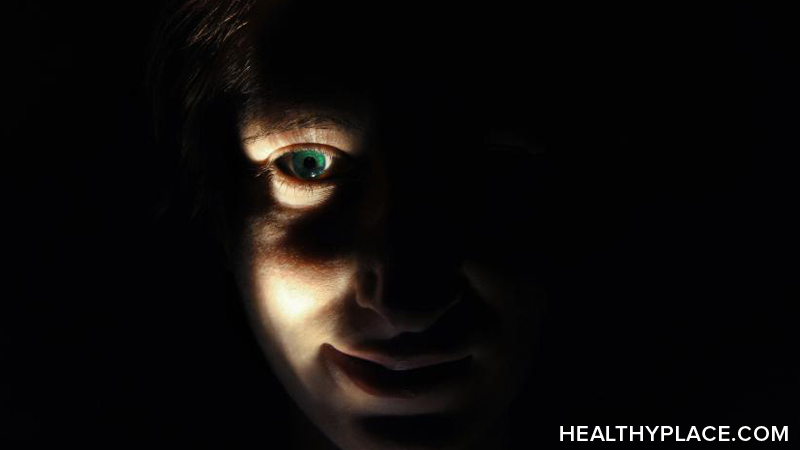
The following personality disorders list may help you understand the ten personality disorders (types of personality disorders) as well as their similarities and differences. At first glance, some of the disorders may seem almost exactly alike, but each disorder on the list of personality disorders has at least one differentiating characteristic.
List of Personality Disorders
Cluster A Personality Disorders
Paranoid Personality Disorder – Individuals with this mental illness have a strong and continuing distrust of others and harbor deep, yet unfounded suspicions about their peers and acquaintances. Imagine someone always on guard, who constantly fears you and others are out to harm, humiliate, or manipulate them in some way. This person may even preemptively attack you and others whom they perceive as threatening.
While this behavior falls well outside the boundaries of societal norms, this person sees an offensive attack as perfectly a logical response to the perceived threat. Do you or have you ever known a person who reads malicious intent in the most innocuous and innocent actions on others? People with paranoid personality disorder see threats all around them. They tend to hold grudges, dwelling to the point of obsession over past slights they've experienced. These tendencies keep them from forming lasting and close relationships as hostility and general distrust consume their emotional lives.
Schizoid Personality Disorder – You will notice a long-term, consistent pattern of social detachment and a limited range of emotional expression in people suffering from this personality disorder. The tendency toward detachment isolates them from socializing and they typically deliberately choose to participate in only solitary activities.
Of all the personality disorder types, people with schizoid personality disorder are the ones with more obvious emotional issues. To others, they seem distracted and cold and, similar to people with autism, miss the social cues most of us take for granted. This makes them appear socially inept and fake. Schizoid personality disorder is one of the more rare personality disorder types.
Schizotypal Personality Disorder – People suffering from this disorder exhibit a persistent and long-term pattern of limited social and interpersonal skills. They feel deeply uncomfortable in social situations and have great difficulty forming close relationships. As with schizoid personality disorder, these individuals are socially isolated, distant, and don't interact with others.
What makes this different than the schizoid type? Unlike those with the schizoid type of disorder, these people experience distortions in perception and behave eccentrically. For instance, he may experience flashes of light or see objects and shadows in his peripheral vision that no one else sees. He'll then admit that nothing is there. The individual may also have eccentric beliefs, such as believing she can read the thoughts of others or that someone else has stolen her own thoughts from her.
Cluster B Personality Disorders
Antisocial Personality Disorder – Those with antisocial personality disorder have a reckless disregard for the rights and boundaries of others. This disregard frequently appears in the form of aggression and hostility. Their hostile, aggressive, and deceitful behaviors often appear during childhood. As children, these individuals may torture animals, destroy property, and bully and intimidate other children. The reckless behavior continues to deepen and includes:
- Deceitfulness – constant lying, conning others for pleasure
- Impulsive behavior – inability to plan ahead
- Aggressiveness – frequent physical fights or assaults
- Lack of remorse – indifference about how they might have hurt others
Borderline Personality Disorder – This disorder appears most obviously in early adulthood and is characterized by an unstable pattern of interpersonal interactions, poor self-image, and dramatic outbursts. People with BPD display most of these symptoms persistently and regularly:
- Deep fear of abandonment – individuals with BPD have a profound fear of abandonment and exhibit powerful efforts to avoid feeling abandoned, whether imagined or in reality.
- Unstable and intense relationships – alternate between the extremes of idealization and devaluation of those close to her
- Disturbed and unstable self-identity – significant and pervasive issues with self-image and personal identity
- Chronic emptiness – almost constant feelings of emptiness which she tries to "fill up" with things or people
- Inappropriate emotional responses – intense bouts of anger and frequent displays of uncontrollable temper often punctuated by physical fights
- Impulsive – shows impulsive behavior in at least two of the following: spending, sex, substance abuse, binge eating or drinking
- Emotionally unstable – mood changes can occur rapidly and can last a few hours, but almost never more than a few days
- Stress-related paranoid thoughts – thinking others are out to get him or plotting against him. These thoughts usually disappear once the stress trigger is relieved.
Histrionic Personality Disorder – Individuals with this disorder have a pattern of displaying excessive emotion in reaction to challenges and events that don't go their way. They are unapologetically attention seeking and live lives full of drama. The drama in their lives goes well beyond that of the typical "drama queen".
They are overly and often inappropriately flirtatious and don't like situations where they aren't the absolute center of attention. In fact, when they aren't the focus of those in their immediate circle, they tend to become depressed and agitated. While they feel uncomfortable when not in a relationship, their behavior patterns make having a truly intimate relationship almost impossible.
Blanche DuBois of Tennessee Williams' play, "A Streetcar Named Desire", represents a great example of a literary character with histrionic personality disorder.
Narcissistic Personality Disorder – One of the more common personality disorders, those with narcissistic personality disorder have distorted perceptions of their sense of self-worth. Many of the issues surrounding this disorder stem from the individual's deep sense of entitlement, which makes them believe they deserve special treatment. People with this disorder typically display five or more of the following:
- Overblown sense of self-importance – exaggerates achievements and talents; expects recognition for "superior" performance without accompanying achievements.
- Envious of others – often secretly jealous of others or believes that others are jealous of him
- Exploits others – manipulates and takes advantage of others to facilitate meeting her goals
- Powerful sense of entitlement – expects an unreasonable level of special treatment and demands automatic compliance with his expectations
- Lack of empathy – inability or refusal to recognize the needs and feelings of others as valid and important
- Arrogant, haughty behavior – displays typically arrogant and haughty attitudes toward anyone who crosses her
- Preoccupied with fantasies of superiority – often lost in daydreams of unlimited success, brilliance, exemplary beauty, and power
- Belief in his or own "special" status – the narcissist believes he is special and unique and only high-status people or institutions are worthy of his company
Cluster C Personality Disorders
Avoidant Personality Disorder – In people with this mental illness, you may notice an inflexible and persistent pattern of social inhibition and a hypersensitivity to negative comments from others. Have you ever known someone who seems to overreact to any comment about her that she could interpret as negative?
Individuals suffering from this mental disorder have an intense fear that other might ridicule and reject them. Due to this, they avoid social situations and close interactions with others, limiting their ability to develop basic social skills.
They think others don't like them and often feel they don't measure up, or aren't good enough. A person with this disorder avoids parties and social events and may find it difficult to speak up during meetings or similar situations. He may come across as shy or stiff and restricted.
Dependent Personality Disorder – Have you known someone – an adult – with a deep need for others to take care of them? People with dependent personality disorder fear losing the support of others and often cling to others and submit to their desires to avoid losing support. An individual with this mental disorder may take great pains to avoid conflict and have difficulty standing up for him/herself, even when it's obviously warranted.
These characteristics make people with dependent personality disorder vulnerable to manipulation. It's hard for them to show independence and disagreement. They find it very difficult to cope with being alone and will immediately find another relationship to replace one that has ended.
Obsessive-Compulsive Personality Disorder – Rules, orderliness, and regulations reign supreme with people who suffer from obsessive-compulsive personality disorder. Perhaps you've known someone who is inordinately preoccupied with perfection and control. People with OCPD value perfectionism over flexibility, open-mindedness, and efficiency. They are preoccupied with lists, rules, details, order, and schedules to the point where the actual activity is lost.
People with this condition have the following characteristics:
- Excessive stubbornness
- Perfectionism that interferes with everyday life
- Excessive devotion to work or practice (i.e. sports or academic study)
- Inflexible on matters of morality, ethics, and values (not attributed to cultural or religious beliefs)
- Exhibit miserliness in spending on self and others
Psychiatrists view personality disorders as an enduring pattern of internal perception and external behaviors that markedly depart from societal norms and interfere with daily life. This personality disorders list represents an overview of the 10 disorders. People often have more than one personality disorder from the same cluster.
article references









